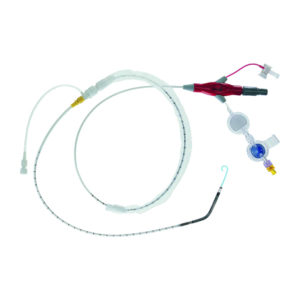
A new study published in Circulation Research finds that the use of haemodynamic support with Impella 2.5 heart pump during high-risk percutaneous coronary intervention (PCI) can reduce the risk of acute kidney injury even when those patients had pre-existing kidney disease and low ejection fraction. According to a press release, the new study builds upon earlier data from PROTECT II—a randomised clinical trial, which found kidney injury rates were numerically lower when more contrast was used during high-risk PCI and adds to the growing body of evidence of the benefits of haemodynamic support with Impella in this context,
For the new retrospective, single-centre study, investigators analysed the procedure and clinical outcomes of 230 patients with an ejection fraction of 35% or less before undergoing high-risk PCI. Half of the patients studied were supported with Impella 2.5 during their procedure, and were compared with a matched-controlled cohort of 115 patients undergoing high-risk PCI without Impella. In the study, Impella-supported patients were more likely to present with comorbidities at baseline such as left main and three-vessel disease, and lower ejection fraction which led to longer median procedure times and greater median volume of contrast in the Impella arm.
Despite these increased risk factors for kidney injury in the Impella arm, the press release reports, the authors found that just 5.2% of the Impella-supported patients developed acute kidney injury post-procedure, compared to 27.8% in the unsupported patients’ cohort. Less than 1% of Impella-supported patients required haemodialysis following the intervention, compared with 6.1% of unsupported patients—suggesting that patients who did not receive Impella were six times more likely to need dialysis. The mean length of stay was also longer in the unsupported group.
Michael P Flaherty (University of Louisville School of Medicine, Louisville, USA), senior author of the study, says: “A substantial number of high-risk PCI patients have both severely reduced left ventricular function and underlying kidney disease, and during their procedure, these patients are exposed to high levels of contrast dye, which further compromises kidney function. We found that, despite severely reduced ejection fractions and baseline chronic kidney disease, Impella-supported patients were six times less likely to develop acute kidney injury, underscoring the importance of Impella as part of a renal protective strategy during high-risk PCI.”












